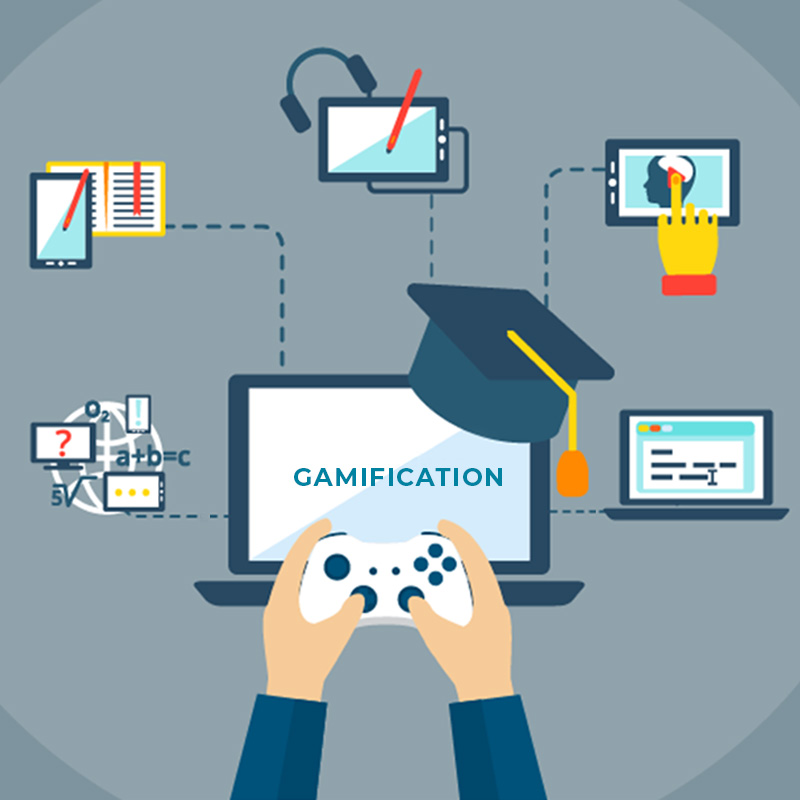Gamification in Education
Looking to engage your students with Gamification?
We are living in the age of technological breakthroughs which is transforming all aspects of our lives; be it – healthcare, banking, entertainment, shopping, or education.
It is imperative for schools, educators, instructors, and academic institutions to incorporate technology in education to provide meaningful learning experiences to 21st century learners.
What is Gamification in Education?
Gamification in education means using game principles like points, badges, and rewards to motivate students to develop their skills by completing series of activities/tasks before advancing to the next level.
Gamification incentivizes learning through competitions to reach a goal. It makes the teaching methodology more relevant for students, provides a fun learning environment, engages them, improves their learning outcomes, and inspires lifelong learning.
Gamification and NEP 2020
The New Education Policy (NEP) 2020 marks a fundamental shift in teaching-learning processes. It emphasises on replacing rote learning with innovative and experiential methods, such as gamification and apps that deliver quality education.
Importance of Gamification in Education
- Gamification encourages students to accept failure as part of the learning process and reattempt learning tasks without embarrassment; it develops resilience, an important skill, which students need to thrive in daily life
- Since students play video games, they understand gamification and don’t need much explanation; it empowers them to learn independently and makes them confident learners who are in control of their own progress
- Gamification drives high levels of motivation; it encourages students to push boundaries to demonstrate mastery over the challenges of the game and achieve their learning goals
- It promotes cognitive development in students; enhances 21st century skills like critical thinking, problem-solving, spatial awareness, and visualisation skills – they need to be successful today and in tomorrow’s workforce
- Gamification offers personalised learning through fun & engaging environment, challenges, and rewards; it shows students that the learning journey belongs to them
- From engaging virtual worlds & challenges to personal avatars and curriculum-aligned learning levels to student-friendly progress tracking via points and scoreboards - gamification is a key ingredient for maximising student learning outcomes
ICT 360 in alignment with NEP, provides ICT curriculum with ready-to-use content, design and computational thinking approach to projects as well as interdisciplinary learning material on an online platform that caters to today’s relevant technologies and future skills requirements. It is designed to help teachers improve their instructional practices with 21st century teaching skills through train-the-teacher program, build a strong foundation to empower students with the ability and skills to design & create amazing things on their own in a fun & engaging environment, excel in academics and prepare them to be industry- and career-ready.
With 50+ partner schools across India, it aims to empower students with creativity, problem-solving, design and tech skills from an early age. These skills are essential for future job roles like Graphic Designers, AI & ML Specialists, Software & Applications Developers, Animators, Robotics Engineers, Data Analysts, and IOT Specialists.
What steps are you taking to implement Gamification in the classroom to develop key skills and improve student learning outcomes?

